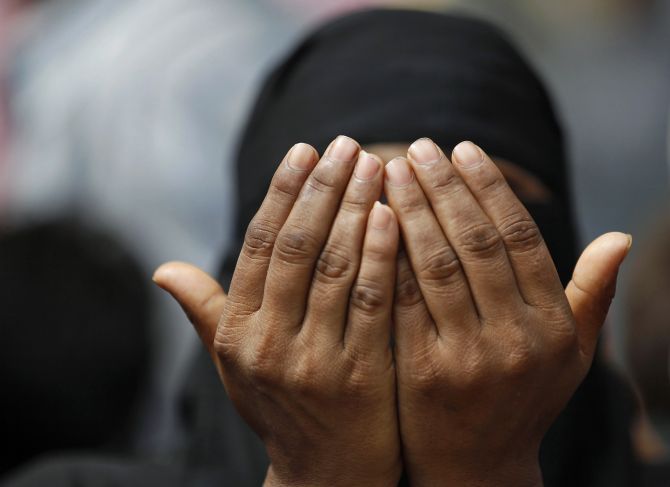The Centre on Thursday submitted in the Supreme Court a list of issues for adjudication including the question whether fundamental right to practice and propagate one's religion protected the practice of triple talaq, 'nikah halala' and polygamy among Muslims.

The NDA government has, for the first time in India's constitutional history, opposed in the top court such prevalent practices among Muslims on grounds like gender equality, secularism and binding international covenants.
A bench headed by Chief Justice J S Khehar perused the four questions framed by the Centre and said they were "constitutional" ones which need to be dealt with by a five-judge bench.
The first issue was whether the practices of triple talaq, 'nikah halala' and polygamy are protected under Article 25(1) of the Constitution.
The Article says: "Subject to public order, morality and health and to the other provisions of this Part, all persons are equally entitled to freedom of conscience and the right freely to profess, practice and propagate religion."
The government then raised the question whether the right to practice and propagate religion is subject to other equally important rights, that is right to equality (Article 14) and right to life (Article 21) of the Constitution.
It then referred to Article 13 which provides that any law is void if it is not in conformity of the constitutional scheme and framed the issue whether the Muslim personal law amenable to this provision or not.
The fourth issue, framed for the consideration of the apex court, said these practices are compatible with India's obligations under international treaties and covenants to which nation is a signatory.
Earlier, the Centre, in its affidavit, had opposed these practices among Muslims by referring to constitutional principles like gender equality, secularism, international covenants, religious practices and marital law prevalent in various Islamic countries.
"It is submitted that the issue of validity of triple talaq, nikah halala and polygamy needs to be considered in the light of principles of gender justice and the over-riding principle of non-discrimination, dignity and equality," it had said.











 © 2025
© 2025